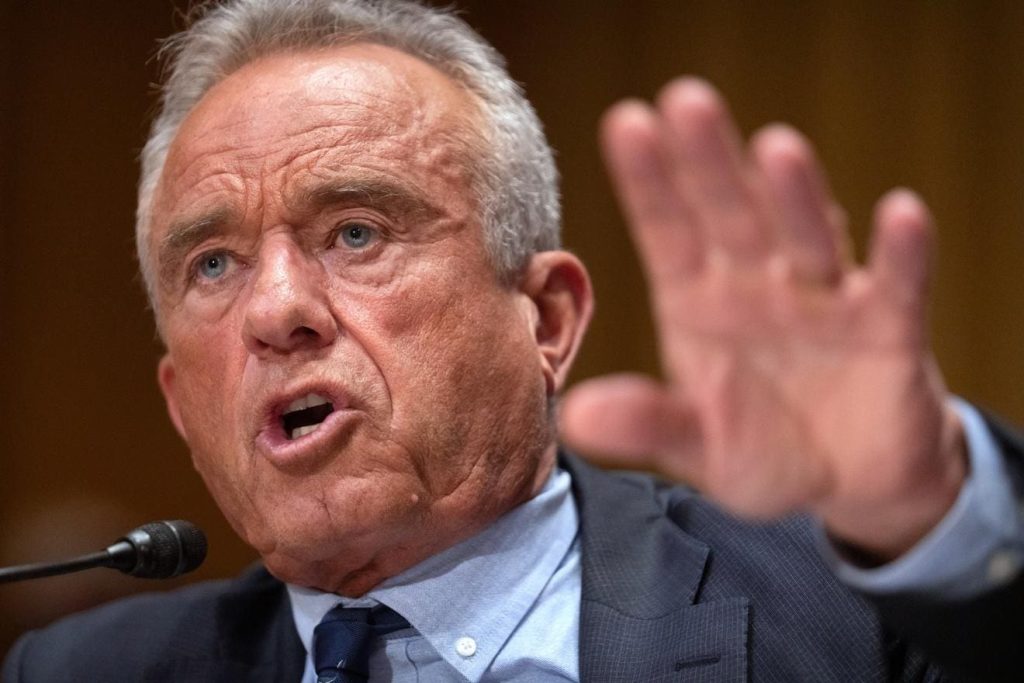Kennedy’s MAHA Movement: A Potential Shake-Up in American Healthcare
In recent weeks, Americans have witnessed the dramatic impact of Robert F. Kennedy Jr.’s unconventional health policies as he begins his tenure as Health and Human Services Secretary. Under his “Make America Healthy Again” initiative, Kennedy has already created waves across the pharmaceutical landscape, starting with his unsubstantiated claims linking Tylenol to autism that sent manufacturer Kenvue into crisis mode. However, this appears to be just the opening salvo in what could become a broader campaign against numerous mainstream medications that millions of Americans rely on daily.
Kennedy’s approach represents a significant departure from traditional public health leadership. His history of making controversial claims without scientific consensus now carries the weight of federal authority. Already, his administration has implemented policy changes making COVID-19 vaccination more difficult to access, while publicly questioning medications widely accepted by the medical establishment. Kennedy’s skepticism extends beyond common over-the-counter drugs to essential treatments, including reproductive health medications. In a recent development, Kennedy and FDA Commissioner Marty Makary wrote to Republican attorneys general announcing a safety review of mifepristone, an abortion medication used in nearly two-thirds of medical abortions in America. This move signals potential restrictions that could dramatically reduce abortion access nationwide, adding another dimension to Kennedy’s health agenda that concerns many medical professionals.
Perhaps most alarming to mental health advocates is Kennedy’s targeting of antidepressants, particularly selective serotonin reuptake inhibitors (SSRIs). During his confirmation hearings, Kennedy made the scientifically unsupported claim that serotonin-based antidepressants are more difficult to discontinue than heroin, and he has repeatedly suggested without evidence that teenagers taking these medications are more prone to committing school shootings. With approximately 11% of Americans relying on these medications to manage depression, anxiety, and other mental health conditions, Kennedy’s “Make America Healthy Again” initiative specifically includes plans to “assess the prevalence of and threat posed” by these widely prescribed medications. Mental health professionals worry that any resulting restrictions could have devastating consequences for millions of vulnerable Americans who depend on these treatments for their daily functioning and well-being.
Cardiovascular medications aren’t exempt from Kennedy’s scrutiny either. Despite overwhelming scientific evidence supporting their efficacy, statins—which over 92 million Americans take to prevent heart disease and lower cholesterol—have been repeatedly questioned by Kennedy and organizations he’s affiliated with. Children’s Health Defense, the organization Kennedy founded, has published articles challenging the established link between cholesterol and heart disease, describing statins as “overprescribed and unnecessary.” More recently, in his official capacity as HHS Secretary, Kennedy claimed on a podcast that pharmaceutical companies manipulated studies to exaggerate statins’ effectiveness. This position directly contradicts the scientific consensus that statins are both safe and effective at preventing heart disease, which remains America’s leading cause of death. The administration’s crackdown on pharmaceutical advertisements seems particularly focused on reducing the uptake of these widely prescribed medications.
Newer pharmaceutical innovations face similar challenges under Kennedy’s leadership, particularly the increasingly popular GLP-1 medications used to treat diabetes (Ozempic, Mounjaro) and obesity (Wegovy, Zepbound). Despite clinical evidence demonstrating these medications’ effectiveness not only for weight loss but for maintaining weight loss long-term—something diet alone rarely achieves—Kennedy has made several misleading claims about them. He falsely stated that Novo Nordisk doesn’t market Ozempic in Europe (it does) and has suggested that proper diet alone could solve America’s obesity crisis, contradicting extensive research showing that GLP-1 medications are significantly more effective than dietary interventions alone. In April, Kennedy took his first concrete action against these medications by rejecting a plan that would have allowed Medicare to cover GLP-1 drugs for obesity treatment, effectively denying access to approximately 7 million Americans. During a Fox News appearance, Kennedy characterized Americans as “stupid and addicted to drugs” for using medications like Ozempic, revealing a concerning perspective from the nation’s top health official.
The emerging pattern of Kennedy’s health policies raises profound questions about the future of American healthcare and medication access. His willingness to dismiss scientific consensus in favor of personal beliefs has alarmed medical professionals, patient advocates, and pharmaceutical companies alike. While public health leadership certainly requires scrutiny of medication safety and pharmaceutical industry practices, many experts worry that Kennedy’s approach may be driven more by ideology than evidence. As his tenure continues, millions of Americans who depend on medications now under his scrutiny face uncertainty about their future healthcare options. From reproductive health to mental wellness, from heart disease prevention to obesity treatment, Kennedy’s “Make America Healthy Again” initiative appears poised to reshape access to treatments that many medical professionals consider standard care. The question remains whether scientific evidence and patient outcomes will ultimately guide these policy decisions, or if personal beliefs will continue to drive this dramatic shift in America’s approach to healthcare and medication access.


